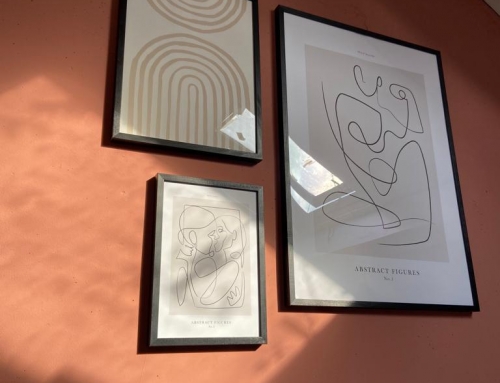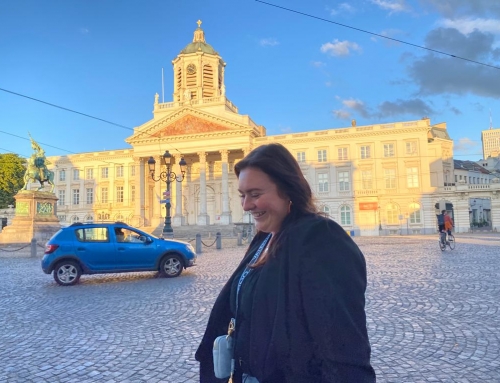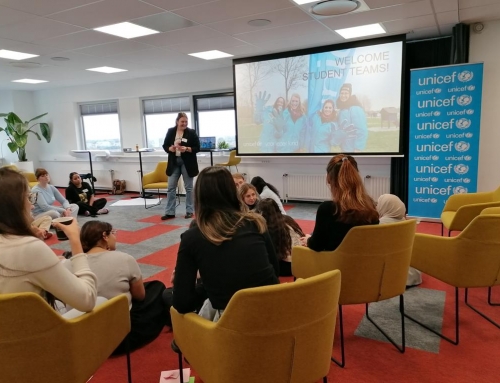In my previous blog I talked about doughnut education and the regulations of traditional education. The situation at the moment has meant that all students have to stay at home to lower the spread of the Coronavirus in the Netherlands. This impacts the Dutch curriculum massively as all children now have to follow classes at home, online. Education systems need to build an online community which is a new development. I see this as a chance for the curriculum to change.
Many parents and teachers are worried that this impacts the development of their students and the education curriculum is looking at ways to ensure that students can catch up on hours missed. For example, having longer school hours in the first term. However, have you ever considered that intelligence and learning lie far beyond the narrow construct of school? As mentioned in my previous blog school prepares you to join the workforce, the funny thing is no one has a clue what “the workforce” will look like in twenty years. Real education should be a journey which allows you to discover what your true calling is.
As seen in my previous blogs many education psychologists have come to realise the importance in being curious about one’s environment and developing knowledge through the process of self-learning. Following a child’s intrinsic interests instead at their own pace.
Homeschooling; also known as home education, is the education of children at home or a variety of places other than school. Home education is usually conducted by a parent, tutor, or an online teacher. (Wikipedia,n.d.)
As mentioned this situation means that children are learning from home. This is something new for the Netherlands as in the Netherlands, education is compulsory. Home-schooling is not accepted by the Dutch government. (Iamexpat, n.d.). There are many children in the world who home-school. In America the NHGRI stated: “The home-educate typically score 15 to 30 percentile points above public- school students on standardized academic achievement tests.” Home for many children means a safe place and therefore gives them the freedom to be themselves, creating a natural learning environment. I believe this can have a positive impact on third culture kids as for them a ‘safe place’ is important for their integration process. Some of these children might already be used to home-schooling, especially for children who come from countries where going to school is not possible.
Due to the digital age, children are able to look up anything they want to. YouTube especially contains many videos which allow children to gain knowledge. We can see this in our generation, when something is broken, for example the fridge we often first look up on YouTube whether there is a video about how to fix it than call someone. This is the same for children when they want to learn a new skill they often look at new videos which has a positive impact because it allows them to do it in their own time, at their own pace and whenever they like.
This personal fit instead of standard curriculum, on-demand instead of force-fed, truly inclusive (all ages, all geographic locations) nature of digital environment is what makes self-discovery, self-directed learning accessible to many, not only the privileged families, and allows for a shift in our view of learning and of ourselves in the new world. This links back to the different approaches I have looked at within the educational curriculum. Doughnut education, culturally responsive teaching and the holistic approach all have one theme in common and that is allowing children to be intrinsically motivated and learn at their own pace.
However, there is also the perspective that this situation has a negative impact, especially for third culture kids. Next to ensuring that the children are still able to develop educationally, it has a big impact on their belonging as they are now not at school where they can feel sense of belonging in the classroom. They might not be able to follow online classes which may also make them feel left out. Communication with this target group is very difficult making it a complex problem. Children are now also at home, meaning they are speaking in their own language and also going back to the norms and values of their culture. This of course, means that they are not being familiarized with the Dutch culture and this will have an impact on their integration. This is a problem which the education systems also encounter during the school holidays. Children often go back to their own countries, or go on holiday meaning that their development within Dutch culture lowers.
To gain an understanding of the perspectives of third culture kids, I conducted a survey at the Edith Stein College who have an international class of students learning Dutch to integrate within the curriculum. Due to their level of Dutch and English I decided to make the survey easy and understandably by using smiley faces. My conclusion of this survey is that these children see school as a safe learning environment and miss being able to learn and be with friends. I believe that because these children did not always have the chance to learn, they see Dutch schools as a big opportunity which they have not had before. The school is often also the only contact place for these students where they can meet up with their peers. Due to the language barrier this is difficult outside of school.
To conclude, I can see the chances but also the fallbacks of the situation at the moment. Even though my research looks at how we can create a more positive learning environment for the target group of third culture kids, I can see how the situation at the moment has influence on this, which I found important to take with me in my research. I will continue my research by looking at the different perspectives (parents, third culture kids, teachers and education systems) on the curriculum as it is now.
References
Homeschooling, (n.d.) Retrieved 16 April from: https://www.wikipedia.org
IAMEXPAT, (n.d.) Retrieved 16 April from: https://www.iamexpat.nl
The year of wonders (2020) Retrieved 14 April 2020 from:





